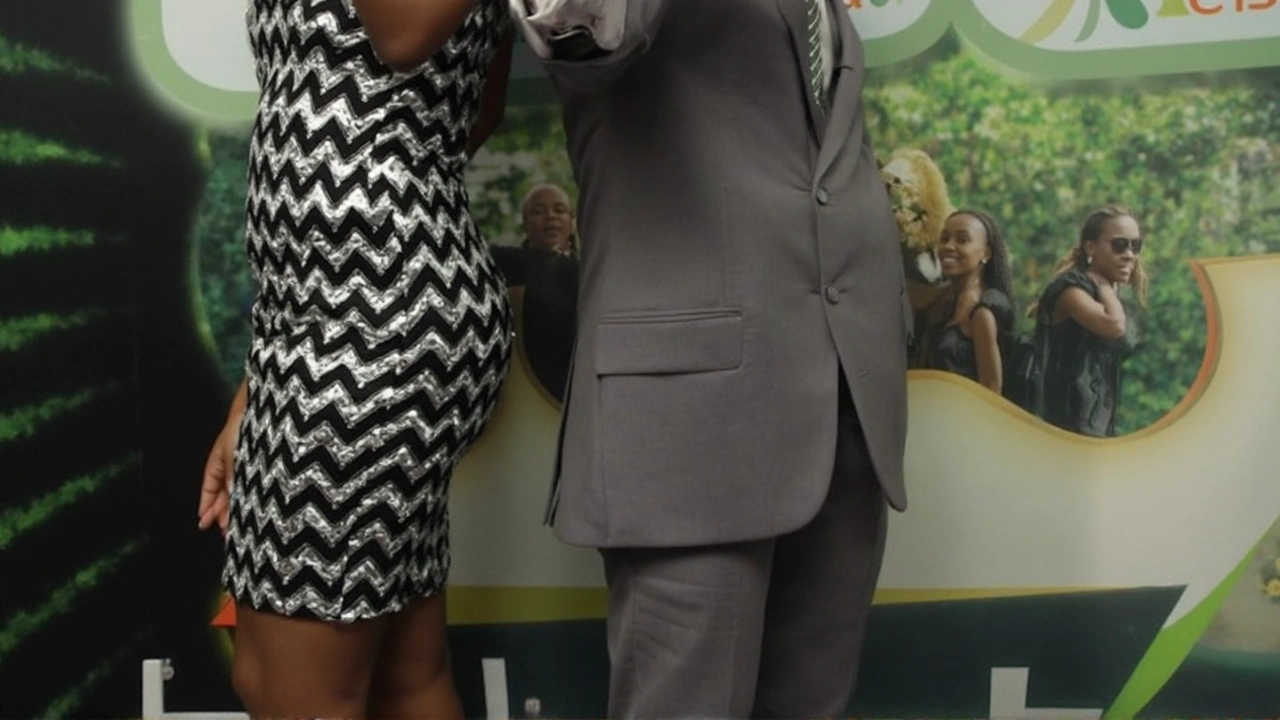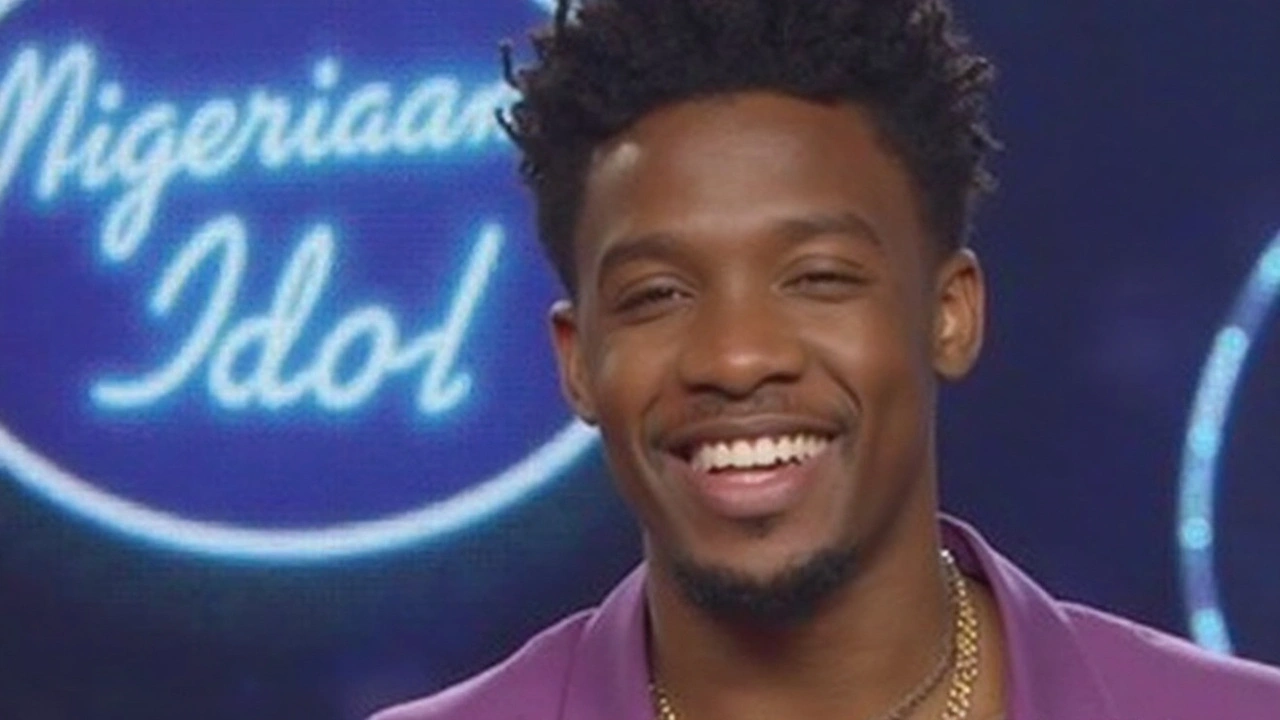K-Peace Triumphs in Nigerian Idol Season 5 as Asa Lights Up Lagos Finale

K-Peace Rises to Stardom in a Thrilling Finale
Lights, nerves, and a buzzing crowd—Nigerian Idol Season 5 truly outdid itself. Out of thousands who gave it their all across Benin, Abuja, Port Harcourt, Ibadan, and Lagos, Kunle Ogunrombi, known on stage as K-Peace, emerged as the new sensation. On June 13, 2015, Dream Studio in Lagos became the arena for a musical battle, with K-Peace clinching the title over fellow finalist Dolu (Ogunmoyero Modoluwamu).
The journey wasn't for the faint of heart. With auditions drawing hopefuls from every corner, the pool was sliced down to just a dozen standout performers. Weeks of elimination, demanding live shows, and real-time votes led to a nerve-wracking showdown between just two contestants. For K-Peace, his soulful take on Sir Shina Peters' 'Ace' became the unforgettable performance that tipped the scales in his favor and won over both judges and fans at home.
K-Peace's prize haul was impressive—he drove away in a brand-new SUV, pocketed a cool N7.5 million in cash, and perhaps most importantly for his career, secured a recording contract with Universal Music Company. Those dreams that once seemed far off during regional auditions were real now. He didn’t hide his joy on stage, giving heartfelt thanks to the show organizers and acknowledging just how tough it had been to face off with Dolu, whose own performances drew plenty of acclaim.

Asa Delivers an Unforgettable Show
No one could ignore the electrifying energy when Nigerian soul queen Asa stepped up to the mic. She crooned out crowd favorites from her album Beds of Stone, moving through ‘Satan Be Gone’, ‘Eyo’, and ‘Moving On’ with the raw authenticity she’s known for. Her appearance wasn’t just a treat for music lovers—it was a reminder of the kind of artistry that many Nigerian Idol hopefuls dream of achieving.
The five-month search for Nigeria’s next breakout star was powered by Etisalat (now 9mobile), whose backing kept the whole project rolling. And, to make sure everything stayed on the up-and-up, voting was transparently audited by Alexander Forbes—a detail that surely built trust among viewers who tuned in week after week.
K-Peace’s story proves just how life-changing a moment on stage can be. For those who watched his journey from auditions to grand finale, it wasn’t just about the music—it was about seeing dreams turn real, right in front of their eyes.
12 Comments
Alex Soete
Wow, K‑Peace really blew the roof off that Lagos finale! The energy in Dream Studio must have been insane, and his rendition of Shina Peters' "Ace" was pure fire. It’s amazing how a talent show can catapult someone from regional auditions straight to a major record deal. This kind of success story fuels the dreams of every aspiring artist out there. Keep the vibe alive, Nigeria!
Damian Liszkiewicz
Absolutely, Alex! 🎉 K‑Peace’s journey showcases the power of persistence and community support. It’s fantastic to see platforms like Nigerian Idol providing a stage for diverse talents. The blend of traditional sounds with fresh vibes really resonates with audiences worldwide. As we celebrate his victory, let’s also acknowledge how shows like this shape the cultural landscape. 🌍
Angela Arribas
Hold up, while the hype is justified, I can’t help noticing a few grammatical slip‑ups in the article – “real‑time votes led to a nerve‑wracking showdown” should be “nerve‑wracking,” and “secured a recording contract with Universal Music Company” would read smoother as “with Universal Music.” Minor issues, but clarity matters! :)
Sienna Ficken
Oh, the drama of the finale! K‑Peace’s climb is like a roller‑coaster of delight mixed with a dash of salty sarcasm-who knew a talent show could double as a suspense thriller? Still, I gotta hand it to the production; they kept us on the edge of our seats, popcorn in hand.
Steve Dunkerley
From a technical perspective, the integration of transparent voting audited by Alexander Forbes adds a layer of credibility rarely seen in reality competitions. This move likely boosted audience trust, which is essential for sustained engagement. Moreover, the involvement of 9mobile as a sponsor underscores the commercial viability of music talent platforms in Nigeria’s entertainment ecosystem. The synergy between corporate backing and artistic expression is a win‑win.
Zac Death
Indeed, Steve, the audit component really sets a standard for future shows-they’re not just flash in the pan, they’re built on solid foundations. It’s also encouraging to see how such collaborations can nurture local talent while offering them international exposure. The whole setup feels like a well‑orchestrated symphony of business and art, each playing its part to amplify the others.
Joseph Conlon
K‑Peace’s ascent is a textbook case of narrative framing in media, where the underdog story is meticulously constructed to maximize emotional resonance with the audience. The producers deliberately highlighted his journey from regional auditions, creating a longitudinal arc that mirrors classic hero myths. This is further reinforced by the strategic placement of high‑stakes moments, such as the “nerve‑wracking showdown,” which serve to heighten viewer investment. By interspersing personal anecdotes-like his heartfelt thanks on stage-they humanize the competitor, rendering him relatable. Simultaneously, the inclusion of established artists such as Asa provides a legitimizing anchor, signaling that the platform can attract top‑tier talent. The sponsorship by Etisalat, rebranded as 9mobile, not only underwrites the production but also embeds corporate branding within the cultural narrative, ensuring a symbiotic relationship between commerce and creativity. The auditing process by Alexander Forbes introduces an element of procedural transparency, which is crucial in an era of heightened skepticism toward public voting mechanisms. Moreover, the prize package-a new SUV, a substantial cash award, and a recording contract-functions as a tangible manifestation of success, reinforcing the aspirational allure of the competition. Each component is deliberately calibrated to sustain audience engagement over the show’s multi‑month run. The juxtaposition of K‑Peace’s raw talent with Dolu’s polished performances establishes a competitive tension that fuels viewership metrics. Additionally, the production’s visual aesthetic-dynamic lighting, close‑up shots, and crowd reaction cuts-serves to intensify emotional peaks, ensuring the climax is both memorable and shareable on social media platforms. The narrative’s pacing, punctuated by weekly eliminations, mirrors a serial storytelling format, keeping audiences returning for subsequent episodes. In sum, the entire construct is a masterful blend of storytelling, marketing, and production design, engineered to not only discover a new star but also to generate substantial media buzz and commercial return.
Cara McKinzie
so like k‑peace win is just another tv fluff lol.
Mohit Singh
Honestly, the whole thing felt like a staged drama-some moments were overly hyped, almost cringe‑worthy.
JAN SAE
Hey there! It's great to see so many perspectives, and I totally agree, the show really brought some fresh energy! The winner's prize, the live votes, and the sponsor backing all tie together perfectly, creating a vibrant spectacle, don't you think?
Lizzie Fournier
All said and done, it's a solid win for Nigerian music, showing that local talent can shine on big stages without losing its authentic flavor.
Jasmine Hinds
So proud of K‑Peace! 🎤🙌

Write a comment